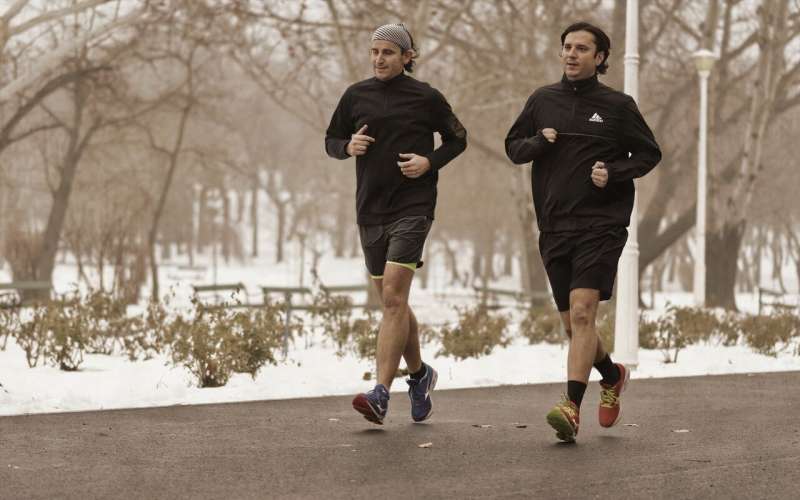This article has been reviewed according to Science X's editorial process and policies. Editors have highlighted the following attributes while ensuring the content's credibility:
fact-checked
trusted source
proofread
It's all in the mind—psychological techniques to help you run faster and longer

It's well known that running has huge mental and physical health benefits. As little as 10 minutes of jogging has been shown to enhance mood, and evidence suggests that running can improve memory and attention. Some studies suggest it can even protect our brain from age-related decline and dementia. However, starting and sticking to a running routine can be difficult, particularly if you aren't used to exercise and are relatively unfit.
"How good or bad we feel during exercise is one of the most important factors that determine our levels of physical activity," says Dr. Noel Brick, a chartered sport and exercise psychologist and researcher in the psychology of running at Ulster University.
"Feeling more pleasure during physical activity is associated with higher levels of activity for a longer term. Because of this, anything we can do to feel better during running means we are more likely to stick with it into the future."
Together with Stuart Holliday, a chartered sport and exercise psychologist, Brick has authored The Psychology of Running, which gives readers psychological tools and techniques that they can use to help maintain their running activity and improve their running performance.
Feeling good
Lower intensity activity, like walking or light jogging, is enjoyable for many people. But when we exercise at higher intensities, like running, there comes a point at which we reach the ventilatory threshold, a physiological landmark where we switch from predominantly aerobic (using oxygen) to predominantly anaerobic (without oxygen) metabolism.
Holliday explains, "Basically, as we run at intensities beyond this anaerobic threshold, we begin to feel worse."
But their research has shown there are things we can do to minimize this discomfort. The authors' research suggests that sometimes, distraction can be helpful—studies have shown that admiring scenic views or even daydreaming can make the run feel more effortless and increase the levels of relaxation after the run.
"Although it's important to avoid distraction if your goal is to run fast, distraction can also help make running feel easier and more pleasant. Helpful distractions include chatting with a running partner, focusing on scenic nature views, or letting your mind wander.
"Another psychological technique is to picture pleasant scenes or images in your mind. This can help you feel better during moderate-intensity running by shifting your focus away from unpleasant bodily sensations," Holliday explains.
The authors also advise avoiding focusing excessively on bodily sensations which can make running feel harder, and instead suggest tuning in periodically.
"Instead of obsessively concentrating on that sore toe or sweating back, you can perform a body scan periodically (for example, how's my breathing, how do my shoulders feel) and use this as a source of information to adjust your running pace, to relax your upper body, and so on," Holliday explains.
Reducing mental barriers
The fourth chapter of the book focuses on how to maximize enjoyment during and after running, for example by lowering your perceived effort—that is, how hard or strenuous a run feels.
Brick explains, "Ways you can do this include mentally breaking down distances into smaller, more manageable chunks. This strategy is called chunking, and it is a technique that runners at all levels use to get through races that, otherwise, might seem overwhelming."
Other tools that could boost your feelings enjoyment during running include using breathing and relaxation techniques to help stay calm and focused, or listening to music.
"Music helps improve running performance and can make running feel easier, more pleasant, and more enjoyable," says Holliday. "More so, synchronous music—music that we coordinate our footsteps with—can also help improve running economy. For motivation, choose music with a rhythm, style, melody, tempo, sound, beat, or lyrics that you find personally motivating."
Finally, one of the most important psychological factors they highlight in The Psychology of Running as determining how we feel when running is the strength of our belief that we can effectively manage the sensations we feel, a psychological phenomenon known as self-efficacy.
"If you feel more confident that you can maintain your concentration, perform well in challenging races, manage your thoughts and feelings, deal with bad weather conditions, or pace yourself appropriately, then you are more likely to set more challenging goals, put more effort into a task, and persist through obstacles and difficulties," says Brick.
Ways to increase your belief in yourself include motivational self-talk, which can help runners deal with high levels of effort and improve running performance. Holliday and Brick suggest experimenting with what you say to yourself (for example, "I can do this") and how you say it (for example, "You can do this"), and find what statements work best for you.
All these mental tools should help to make running feel more enjoyable and less effortful, as well as boost your belief in yourself that "you can do it."
More information:
Noel Brick et al, The Psychology of Running, by Dr Noel Brick, Stuart Holliday (Routledge, 2024)
ISBN: Paperback 9781032068619| Hardback 9781032068626 eBook 9781003204206. DOI: 10.4324/9781003204206


















